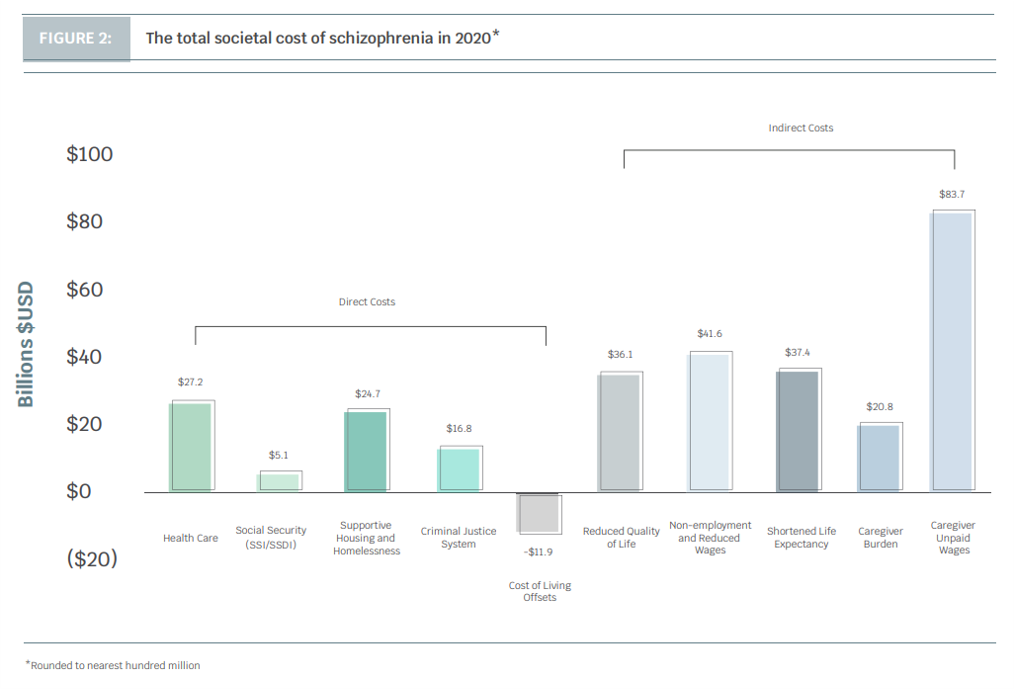That is the finding from a white paper from the Schizophrenia and Psychosis Action Alliance titled “Societal Costs of Schizophrenia & Related Disorders“. I am a co-author on the paper. Below is a summary of the findings:
…the societal costs of schizophrenia were estimated to be $281.6 billion in 2020…Direct costs for individuals living with schizophrenia were nearly $62 billion USD in 2020 of which 36.8% could be attributed to health care, 33.5% to supportive housing (structured residence and long-term care facilities) and homelessness services, and 6.9% to Supplemental Security Income and Social Security Disability Income…
Individuals living with schizophrenia also incur significant indirect costs due to the impact of the disease on their lives, accounting for $115.2 billion in 2020. Individuals with schizophrenia have significantly lower quality of life and reduced life expectancy, accounting for $73.5 billion of costs in 2020. Additionally, while most individuals with schizophrenia are living in community settings, there is a high unemployment rate in this population. When employed, individuals with schizophrenia earn less than people without schizophrenia. Unemployment and reduced wages account for $41.6 billion in indirect costs.
The impact of schizophrenia on caregivers is extremely high. The estimated indirect costs due to caregiver impacts account for over $104.5 billion in excess costs in 2020, or 37% of the total. Most of these costs are due to unpaid caregiving ($83.7 billion) including $20.8 billion due to the excess costs of reduced productivity in addition to higher personal health care costs and out-of-pocket costs.

You can read the full report here.